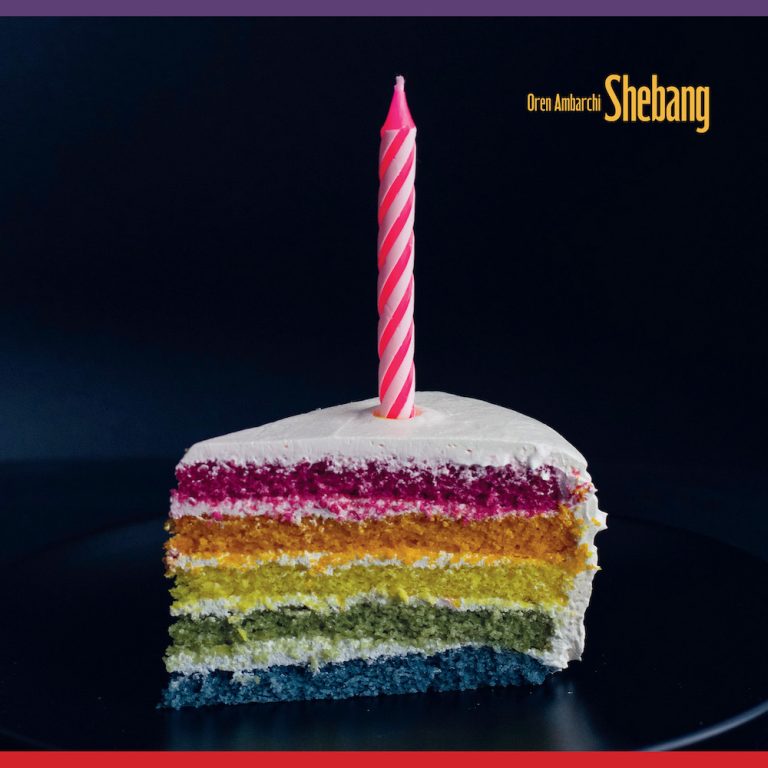For some artists, going out of their way to defy easy characterization becomes part of their aesthetic. Never feeling constrained by a single genre or style, Oren Ambarchi has brought his avant-garde ideology to rock, electronic, jazz, and various other musical histories – as well as to whatever specific influence he chooses to direct his attention to at any given moment.
Declining to appear in music videos, frequently forgoing the presence of a singer, and often scrapping song titles entirely, Ambarchi seems determined to be the sole vessel for the music and simply wants to get out of its way. In his latest project Shebang, described by Ambarchi as a “detailed long-form rhythmic workout”, he works to weave together many separately recorded parts from his collaborators, layering them until they resemble a very avant-garde version of a night at a jazz club.
Prolific in his subversion of expectations, Ambarchi starts off with neither a rhythm nor a workout. An experimental musician famed for long, star-studded compositions, Ambarchi is not the type to rest on his laurels. However, as the album opens, he lays aside his usual intensity for a drawn-out lullaby of self-described “guitars and whatnot”. The sunshiny plucking of the strings creates a dreamlike melody upon which the musician builds, swirls, moves, lingers, and invents. Before introducing us to his musical conspirators, Ambarchi intimately invites us into his musings as he reveals each note’s ability to convey meaning without the need for words.
As the outro of “Shebang I” track fades away, however, the guitar-fueled daze makes room for the dramatic lows of the bass clarinet while the subdued, rhythmically-minded drums lead us into the true symphony. Ambarchi has always been one to take his time with a groove, and here, he enlists drummer Joe Talia to bring the perfect rhythm upon which the melody rests. Each musician meticulously adds a new flavor to the mix. It’s a perfect coalescence that holds enough talent to be truly rococo but stays focused, and in its grandiose minimalism, almost Romantically-inclined. Here BJ Cole’s pedal steel, there Ambarchi’s guitar, each musician adorns the composition, preparing for the moment to rise.
That moment comes in the transition of “Shebang II” to “Shebang III” and with the welcome addition of Chris Abrahams’ skilful piano. On his own, Abrahams is a man who knows how to take just as much out of silence as he can from a single note. In “Shebang III”, he takes a groove that he had yet to touch and awakens it with his lively piano playing, allowing the subtle trills and arpeggios to deftly blend into the existing landscape as each moment is underlined by his nuanced performance.
Bringing the workout to the rhythm, the track sees the mix become busier, and, thanks to the acoustic bass of Johan Berthling, much fuller. Expectations rise, and out to meet them comes Julia Reidy’s 12-string guitar. The final stretch of the composition is a tense blend of drum, piano, and guitar that leaves the listener on the edge of their seat.
The conclusion of the piece, “Shebang IV”, comes as the buzz of Jim O’Rourke’s synths invites the mix to quiet down as each instrument fades away, all up until the last few trilling piano notes. The tension, rather than released explosively, is slowly unfurled, and in this silence, the listener is invited to a reverent round of applause rather than an overtly theatrical standing ovation.
Ambarchi has never shied away from letting any of his records be labeled as collaborations, and he certainly did not make Shebang alone. Yet the label of ‘solo record’ is fitting for how succinctly his vision comes through in all of it. While his last release, Ghosted, sought many ideas to explore, Shebang returns to his love for exploring the malleability of a composition. This record does not seek a form or a particular direction. Rather, it is content to let the music flow until its boundaries are reached, or not. For an outsider, it is best approached without expectations, as Ambarchi has no intention to conform to them. Long-time followers of his work, however, will find the label of ‘workout’ very appropriate, as he flexes the creative muscles which have allowed him to create so many long-winded symphonies in the past. True to the label of free-form, this record shouldn’t be assigned or associated with any single theme. Its makers just seem to want you to enjoy the whole shebang.

